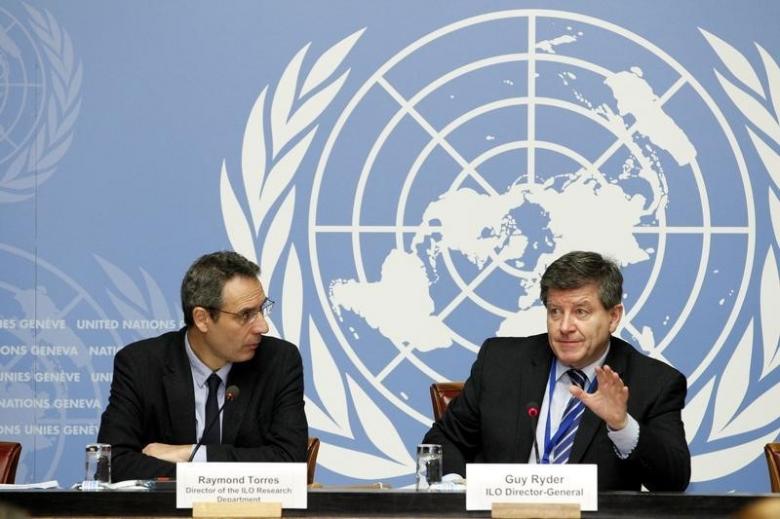The International Labour Organization (ILO) said on Monday that Global Economic Growth in 2017 and 2018 was insufficient to reduce unemployment, in spite of a mild pick-up compared to 2016.
Mr Guy Ryder, ILO Director-General, in a statement made available to the News Agency of Nigeria (NAN), said that the organisation expected unemployment to reach over 200 million this year.
Ryder said that progress in reducing vulnerable employment in developing countries has slowed, risking the projected achievement of the 2030 Sustainable Development Goals (SDGs).
He said the prolonged period of slow growth since the global financial crisis was damaging productivity.
“Demand-side, as well as supply-side policies are needed to rekindle the positive relationship between productivity and real wage growth through increased investment, innovation, sustainable enterprise creation and decent work,’’ he said.
The ILO director general said that one in eight of the global youth workforce, more than 70 million young women and men, are expected to be unemployed in 2017.
Ryder said that since the 1990s, a gap between real wage growth and productivity growth has resulted in declining labour income shares in many advanced and emerging economies.
He further said that gender inequality persists in global labour markets, in respect of opportunities, treatment and outcomes.
“An issue of social justice, gender inequality reduces the productive potential of economies,’’ Ryder said.
He said that enhanced employment and social policy packages could make growth and development more inclusive and stronger as key macroeconomic tools. (NAN)

